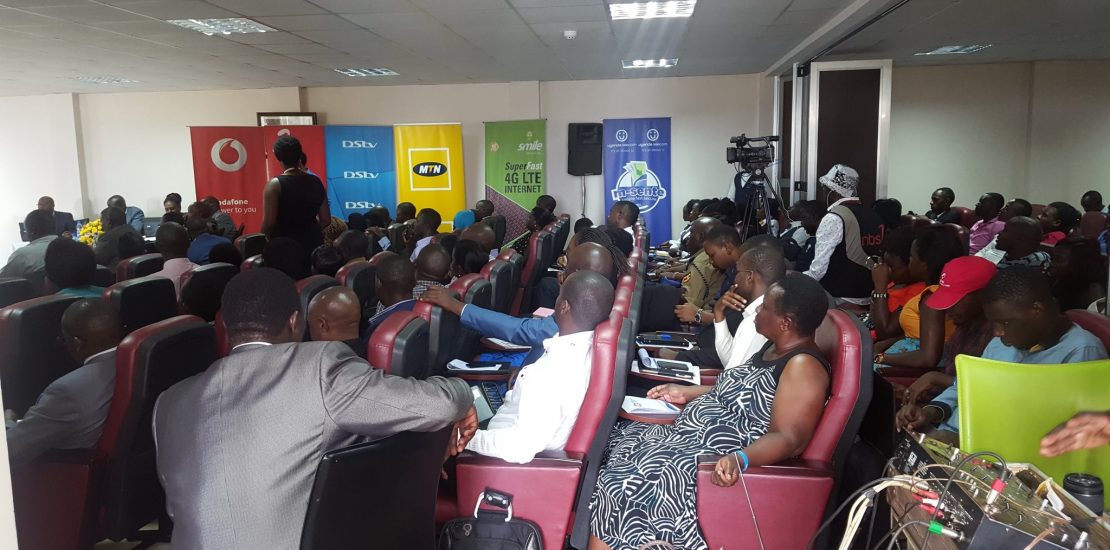- March 16, 2017
- Posted by: secretariat
- Category: ICTAU Updates

Since 2014, the Uganda Communications commission has held an annual Communications Consumer Parliament as a platform that facilitates the interaction between consumers and service providers of communication services and products. The Communications Consumer Parliament (CCP) is an interactive forum that enables multi-stakeholder discussions on issues related to: usage and performance of communication services; consumer rights and obligations; and service provider’s obligations to provide redress and resolution of consumer complaints.
The Fourth edition of the Consumer Parliament (CCP4) was held in Jinja Town on the 15th March 2017 with the theme, “The media we want.
Since its inception, the CCP4 has provided consumers with the opportunity to contribute ideas to the development of the communications sector in Uganda; to raise emerging issues and concerns directly to service providers and most importantly strengthen dialogue between consumers, service providers and other communications sector stakeholders and players.
Uganda Communications Commission has also, over the years, used this platform to elicit stakeholder views and input to telecommunication regulatory policies and broadcasting standards. And this year, the ICT Association of Uganda (ICTAU) joined other consumer organization groups to petition UCC on broadcasting services. The petition focused on this year’s theme “The Media we Want” and looked at a wide range of issues such as;
Broadcast Regulatory Environment & Consumer Protection from false and/or harmful and misleading information which is delivered at high speeds on multiple frequencies at the speed of a “click” on a phone pad. This has been made possible by fast paced technological innovation and growth in information and communication technologies introducing a very complex environment for consumer protection and regulation. This environment more often renders regulators less effective. As consumer advocacy organisations, we recognized this challenge and what ought to be our contribution to a clean broadcast environment.
Another concern of consumers is in the realm of unethical conduct and content against what is clearly illegal practice. Some messages on television and social media channels are out rightly disgusting to some people in the audience, but entertaining to others. The line between ethical and unethical practice has thus become very thin. This is, especially where unethical broadcast practice and content is not clearly illegal. It has not been clear in the circumstance where responsibility is placed between the broadcaster and the advertiser. As consumer organisations we agreed to collectively find a mechanism to help regulate both unethical and illegal broadcast content.
Other concerns revolved around False & deceptive Information or Advertising, Disparaging Information & Advertising, Broadcast by Testimonial Use, Privacy of Persons, Safety of Consumers among many others. These are a few of the practices and conduct that defines “the media we have.” And not the one we want. From the media we have, it was clear that the media we want is an ethical and law abiding media. As consumer organisations we defined the complexity of regulation in the new era of ICT and broadcasting and underscored the thin line between unethical and unlawful information conveyance.
We recommended the UCC Supports Consumer Protection Legislation Process building the necessary coordination for consumer protection which has a very wide scope; Establishment Communications Tribunal through the MoICT to enhance the capacity and framework for resolution of conflict and confrontation between and among communication service providers; and that that advertising standards code that was developed by UCC be enforced as a minimum entry point for broadcast regulation.
We are optimistic that Ugandan Communications Commission will provide feedback and accountability on the issues raised in this just concluded communications consumer parliaments.
The consumer organisations present were: ICT Association-Uganda (ICTAU), Uganda Consumers’ Protection Association (UCPA), Consumer Education Trust – CONSENT, Uganda Consumer Action Network, Uganda Information Technology Consumer Protection Association, I-Network Uganda, The Commonwealth Peoples’ Association of Uganda (CPAUG) and Women of Uganda Network (WOUGNET)
This article was written by Ms. Maureen Agena the Secretary General of ICTAU who represented the association in the 4th Consumer parliament. For more information, follow @ictaug on twitter.
